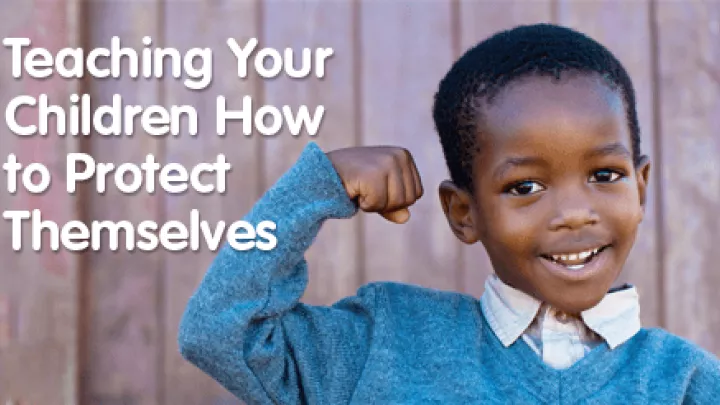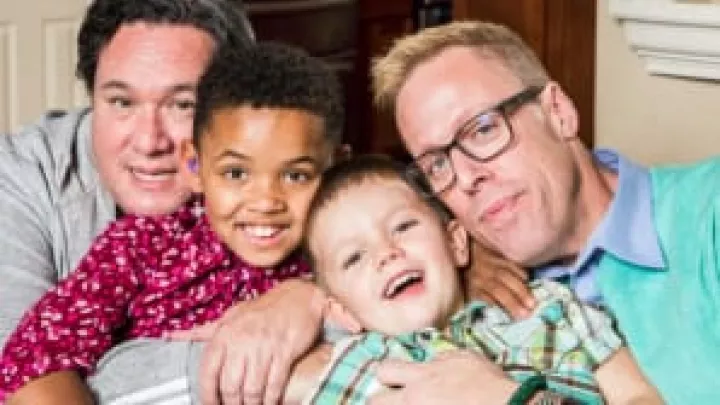
Preventing Abuse of Kids with Developmental Disabilities
Recently we talked about how to help prevent bullying of children with autism spectrum disorder (ASD), an all too common problem. Just as scary, if not more so, is the fact that children with developmental disabilities are also vulnerable to sexual abuse. Children with developmental disabilities are twice as likely to experience sexual abuse as typically developing children. Unfortunately, offenders may choose children who are more vulnerable due to their disability and the social isolation that can go along with being different. Although the statistics can be alarming, there are many things families can do to reduce the risk.

Families can reduce a child's risk of abuse by teaching them some important skills and information. Parents can also lead by example in terms of what they say and teach their children, and their family values. These are things children should learn to help them grow up strong and confident. Below are principles that any parent can benefit from knowing and instilling in their child, much less parents of a child with developmental disabilities.
"My body is mine"
Set up rules around touching and practice this rule until it becomes an expectation for everyone. Ask first. For example, "I'm so proud of you; can I give you a hug?" "Would you like a kiss goodnight?" Children with developmental disabilities may be uncomfortable or sensitive about particular types of touch and can learn about personal space when family members respect their touching preferences. This learning can start as early as preschool, when many children are very focused on learning what they can be in charge of.
Personal care
Help children take responsibility of caring for their own body. This reinforces personal space. A child who is independent in bathing or going to the bathroom is less vulnerable to being taken advantage of in abusive situations. It may take patience and ongoing and gradual instruction to help a child with a developmental disability learn these skills, but it is also an important step in helping them grow up.
"Private triangle"
Children can learn that the parts of their bodies covered by a bathing suit are private. No one should touch their private area except for hygiene or medical reasons. A good way to know if the touching is appropriate is if they can tell other adults about it. Touching that is secret is not appropriate
"No, go, tell"
This simple phrase is a reminder for children of what to do if someone tries to touch them in a way that makes them uncomfortable:
- Say no
- Get away if you can
- Tell an adult. A child should continue telling until an adult helps them.
There should be at least three adults that a child can go to for help. All children should be taught the proper names (or "doctor names") for private body parts. Slang words can vary from culture to culture, and family to family, but the "doctor names" are always understood. This teaching can happen as early as teaching a child the names for “nose, eyes and ears” but it’s never too late to tell a child, “now you’re old enough to learn the doctor names for private parts.” “No, go tell” can be a natural thing to teach children when you’re talking about other safety rules, such as how to cross the street or not to play with matches.
Positive self-image and social relationships
Children who feel good about themselves and have at least one friend are less vulnerable to being taken advantage of by others. Families can help children take pride in their accomplishments, large and small. For example, posting their artwork on the refrigerator, attending school events, etc. Moreover, youth clubs, activities or play dates can help foster friendships with other children with similar interests.
Age-appropriate sex education
Children with developmental disabilities experience the same physical and emotional changes with puberty as typically developing children, but are less likely to receive sex education at school. Preparing a child in advance for body changes associated with puberty makes the experience less confusing and offers an opportunity to teach them about the family's values and beliefs regarding sexual relationships along with the facts. Talking openly, and in an age-appropriate way with a growing child about this aspect of life shows them that it is an acceptable topic to ask questions about. If they have questions or uncomfortable experiences, they are more likely to talk with an adult who has shown they are willing to address the subject.
Puberty can start as early as eight, and it’s helpful for a child to have information about the changes they are experiencing. But they don’t need to learn everything all at once. Instead, talk to them about what they are most likely to be experiencing at the time. Body changes, “crushes,” and questions about dating are all topics that may seem more important to a child at different times in their development.
The topics can be uncomfortable or even frightening for family members to think about. The information and skills above can help a child be less vulnerable to victimization and better equipped to navigate adolescence. But most of this teaching happens naturally in families as children grow. Being aware of the important lessons can help parents be ready to take advantage of “teachable moments” as they arise in a child’s life.
Please share this post with caregivers as well. Doing so can reduce the risk of abuse by teaching children with developmental disabilities what they need to know about their bodies.


